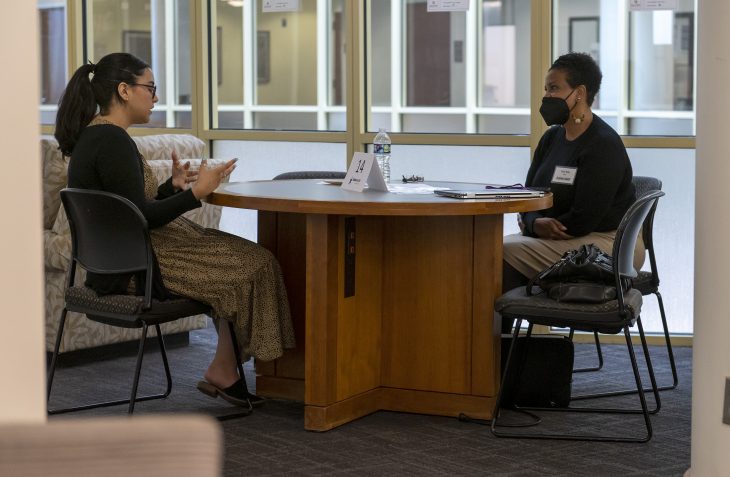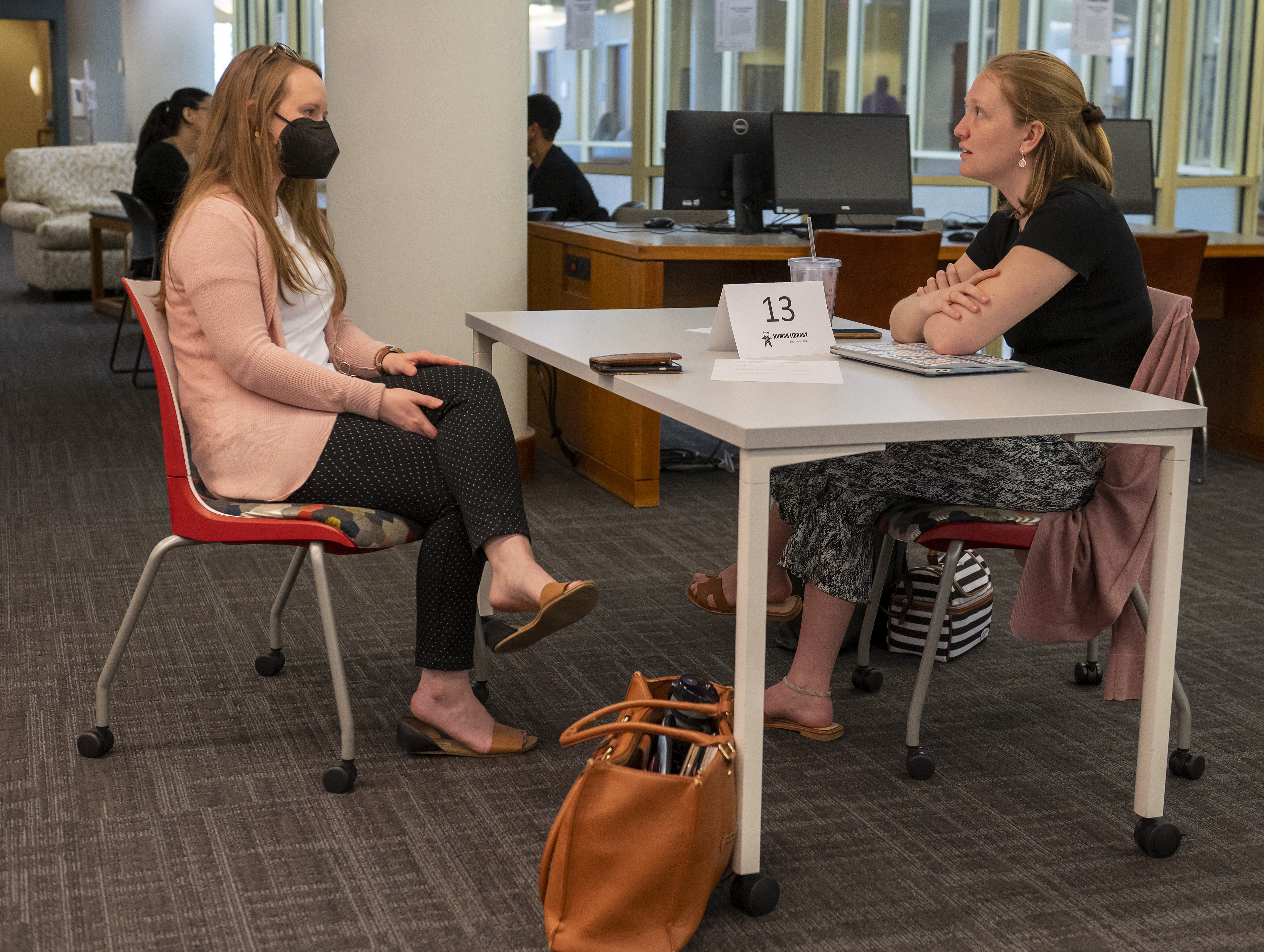Originating from Denmark 22 years ago, the Human Library project teaches how to "unjudge" people and returns for the sixth time on Elon's campus.
Often people label themselves as an “open book,” but 16 members of the Elon community took that literary adage literally and volunteered to participate in the sixth annual Human Library event at Elon University.
“It’s a way for people to have conversations about identities and across differences,” said Patrick Rudd, coordinator of library instruction. “We knew it would be a great event just to get people talking about who they are.”
Elon’s iteration of the event is a collaboration between Belk Library, Residence Life, the Koenigsberger Learning Center and the Center for Equity and Inclusive Excellence and took place at Belk Library on Wednesday, April 6. The Human Library began in Denmark in 2000 as an event designed to challenge stigma and stereotypes.
By creating a space where difficult conversations are not only welcomed but encouraged, the Human Library opens the door for engaging and empathic dialogue.

“I felt like this event was rooted in empathy,” said MJ Larrazabal, assistant director of the Center for Race, Ethnicity and Diversity. Larrazabal’s “book” was called “American Nightmares and Immigration Dreams” and focused on her journey from being undocumented to becoming a DACA recipient to becoming a citizen. She spoke with those interested in her story about how that 20-year journey affected her and guided her to the work that she does today.
Larrazabal hopes those she spoke with during the Human Library event are inspired to research more about immigration rights.
“I think there’s such beauty in vulnerability. For the past two years, we’ve had to be very reactionary to all the things around us … and we are no longer talking about the little things that matter,” Larrazabal said.
“From other human stories, I learned so much about other people that I see every day as a staff member but not as a human.”



